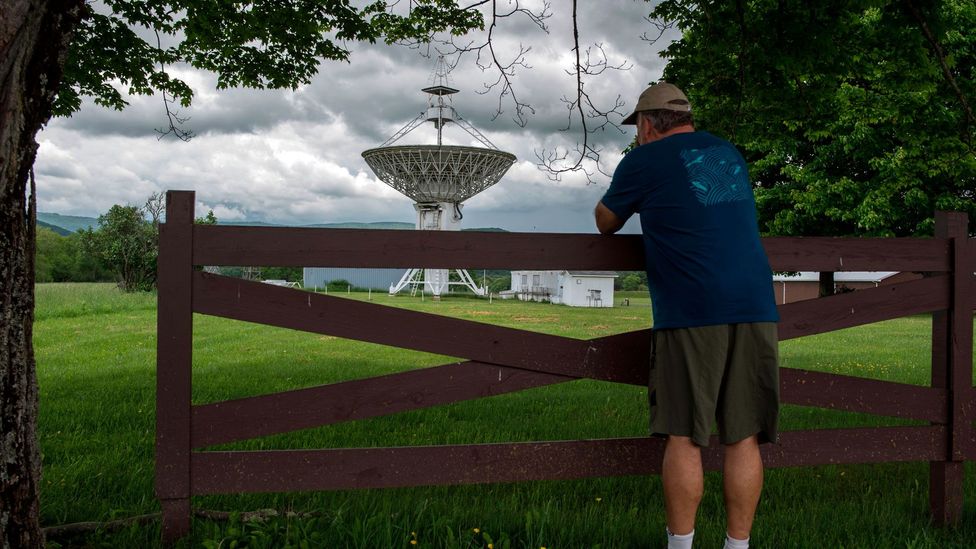Are China, Russia ahead of U.S. in UFO retrieval, research?

Photo by Gianluca Carenza on Unsplash
By: Newsroom
MODERN DIPLOMACY
Date: November 6, 2023
Last week, a former senior Defense Intelligence Agency scientist became the 10th ex-government official, military officer or scientist to allege (or suggest) publicly that the U.S. government has recovered at least one UFO, writes Marik von Rennenkampff, an analyst with the U.S. Department of State’s Bureau of International Security and Nonproliferation.
Importantly, the inspector general for the intelligence community deemed the lead UFO whistleblower’s core allegations “credible and urgent.” Moreover, the whistleblower, former intelligence official and U.S. Air Force veteran David Grusch is represented by the intelligence community’s first inspector general.
As Rep. Mike Gallagher (R-Wisc.), a member of the House Permanent Select Committee on Intelligence, stated recently, new protections enacted by Congress resulted in “all sorts of [UFO whistleblowers] coming out of the woodwork.” These individuals, Gallagher said, are telling congressional investigators that “they’ve been part of this or that [UFO] program,” resulting in “a variety of pretty intense conversations.”
As Senate Intelligence Vice Chair Marco Rubio (R-Fla.) has put it, one of two astounding possibilities is now at hand. Either dozens of credible individuals are gradually revealing the “the biggest story in human history,” or a sizeable cohort of high-level government officials holding top security clearances is “crazy.”
Reflecting on the stature of the individuals who spoke to Congress, Rubio asked rhetorically, “What incentive would so many people, with that kind of qualification — these are serious people — have to come forward and make something up?”
Indeed, given the penalties for making false statements to investigative agencies, it is unlikely that these individuals — some of whom claim direct, firsthand knowledge of the alleged UFO retrieval and reverse engineering efforts — are participating in a sophisticated disinformation effort.
So, are numerous high-level government officials delusional and making false claims of firsthand UFO knowledge to investigators? Such a stark case of social contagion would amount to a concerning and extraordinary development.
Moreover, if dozens of senior officials are indeed “crazy,” they have still somehow convinced key members of Congress to treat their extraordinary allegations with utmost seriousness.
Following reporting that China and Russia may also have retrieved UFOs, language in the legislation alluding to the “increasing potential for technology surprise from foreign adversaries” takes on a particular significance.
According to retired U.S. Army colonel Karl Nell, who served alongside Grusch in an early iteration of the U.S. government’s contemporary UFO analysis efforts, “[Grusch’s] assertion concerning the existence of a terrestrial arms race occurring sub-rosa over the past 80 years focused on reverse engineering technologies of unknown origin is fundamentally correct.”
These allegations, from two former high-ranking defense officials, in tandem with independent investigative reporting, raise a host of national security questions and issues. And clearly, Congress is paying attention.
Intriguingly, following a classified briefing from the Department of Defense inspector general on UFOs this week, Rep. Eric Burlison (R-Mo.) stated, “It appears… somebody has discovered something – some advanced form of propulsion or technology – that may actually change all of our lives.”
If alien life is artificially intelligent, it may be stranger than we can imagine


25th October 2023
Lord Martin Rees is the UK's Astronomer Royal, and is based at the University of Cambridge. His most recent books are If Science is to Save Us, and The End of Astronauts, co-authored with Donald Goldsmith.
We've long assumed that aliens will be like us, but there's every reason to think they are instead a form of unfathomable AI, says the UK astronomer royal Lord Martin Rees.
It's taken more than four billion years for intelligent life to emerge by natural selection on Earth, but there are billions more years ahead in our planet's lifetime. Over that time, intelligence could develop in entirely new directions.
We human beings may be near the end of Darwinian evolution – no longer required to become the fittest to survive – but technological evolution of artificially intelligent minds is only just beginning. It may be only one or two more centuries before humans are overtaken or transcended by inorganic intelligence. If this happens, our species would have been just a brief interlude in Earth's history before the machines take over.
That raises a profound question about the wider cosmos: are aliens more likely to be flesh and blood like us, or something more artificial? And if they are more like machines, what would they be like and how might we detect them?
Not like us
Many assume that human beings are the peak of intelligence, but it's possible that our species may represent a stage on the path towards minds that are more artificial. This could explain why the cosmos seems so empty of life like us. If an evolutionary transition to non-organic intelligence is inevitable across the Universe, our telescopes would be most unlikely to catch human-like intelligence in the sliver of time when it was still embodied in that form. It is perhaps more likely that the aliens would be the remote electronic progeny of other organic creatures that existed long ago.
It's taken more than four billion years for intelligent life to emerge by natural selection on Earth, but there are billions more years ahead in our planet's lifetime. Over that time, intelligence could develop in entirely new directions.
We human beings may be near the end of Darwinian evolution – no longer required to become the fittest to survive – but technological evolution of artificially intelligent minds is only just beginning. It may be only one or two more centuries before humans are overtaken or transcended by inorganic intelligence. If this happens, our species would have been just a brief interlude in Earth's history before the machines take over.
That raises a profound question about the wider cosmos: are aliens more likely to be flesh and blood like us, or something more artificial? And if they are more like machines, what would they be like and how might we detect them?
Not like us
Many assume that human beings are the peak of intelligence, but it's possible that our species may represent a stage on the path towards minds that are more artificial. This could explain why the cosmos seems so empty of life like us. If an evolutionary transition to non-organic intelligence is inevitable across the Universe, our telescopes would be most unlikely to catch human-like intelligence in the sliver of time when it was still embodied in that form. It is perhaps more likely that the aliens would be the remote electronic progeny of other organic creatures that existed long ago.

In the classic movie The Day The Earth Stood Still, one of the aliens is a robot - but still humanoid (Credit: Getty Images)
The prospect of inorganic alien intelligence raises some striking possibilities. If these beings are out there, they would act and think totally differently to us. They may not want to be detected. Indeed, their intentions may be impossible to fathom. To quote Charles Darwin, "A dog might as well speculate on the mind of [Isaac] Newton." However, we might deduce a few things.
For one, non-organic intelligence may have no use for an atmosphere, or the planet on which they originated. Interstellar voyages – or even intergalactic voyages – would hold no terrors for near-immortals.
Indeed, they may prefer to live in zero-gravity, because there you can make very large, very lightweight objects. If you wanted to build a huge, elaborate gossamer-thin structure to harvest energy, for example, it's easier in space than on a planet.
If they have silicon-based brains, they might realise they could expend less energy in colder regions away from planetary systems
It's also not obvious that they would need to live in orbit around a star. Perhaps they'd have new ways of getting energy that we just can't envisage yet. If they have silicon-based brains, they might realise that the energy needed for processing "bits" is less at low temperatures, so they would expend less energy in colder regions away from planetary systems. They might even choose to hibernate for billions of years until the cosmic microwave background – the leftover radiation from the Big Bang – is further cooled by the continuing expansion of the Universe.

We look to the galaxies for life, but could AI aliens live in the cold inbetween?
(Credit: STScI/Nasa)
They may not have the same base desires as us. We have evolved through Darwinian pressures to be an expansionist species. Selection has favoured intelligence but also aggression. But if Darwinian pressures do not apply to these artificial entities, there's no reason why they should be aggressive. They may just want to think deep thoughts.
The fact we haven't seen any, and haven't been invaded by them, doesn't mean there's nothing out there. They may simply be more contemplative. We can't assess whether the "great silence" of the cosmos signifies their absence, or simply their preference.
We can't assess whether the "great silence" of the cosmos signifies their absence, or simply their preference
We also can't assume that they'd even be a "civilisation". On Earth, this term connotes a society of individuals: in contrast, ET might be a single integrated intelligence.
Pessimistically, they could be what philosophers call "zombies". It's unknown whether consciousness is special to the wet, organic brains of humans, apes and dogs. Might it be that electronic intelligences, even if their intellects seem superhuman, lack self-awareness or inner life? If so, they would be alive, but unable to contemplate themselves, or the beauty, wonder and mystery of the Universe. A rather bleak prospect.
Alternatively, their more advanced intelligence could well allow them to understand crucial aspects of reality that we cannot, just as a monkey can't understand quantum theory. There could be complexities to the Universe that neither our intellect nor our senses can grasp, but electronic brains may have a quite different perception.
Implications for searching
If alien intelligence is more likely to be non-organic, what would this mean for the Search for Extraterrestrial Intelligence (Seti)?
In a decade or two, there's a realistic prospect that we'll have the capability to detect biosignatures on other planets – atmospheric chemistry or vegetation, for example. But to detect artificial life, we would need to look for "technosignatures", such as electromagnetic transmissions. (Read more about how astronomers are looking for life on other worlds.)
They may not have the same base desires as us. We have evolved through Darwinian pressures to be an expansionist species. Selection has favoured intelligence but also aggression. But if Darwinian pressures do not apply to these artificial entities, there's no reason why they should be aggressive. They may just want to think deep thoughts.
The fact we haven't seen any, and haven't been invaded by them, doesn't mean there's nothing out there. They may simply be more contemplative. We can't assess whether the "great silence" of the cosmos signifies their absence, or simply their preference.
We can't assess whether the "great silence" of the cosmos signifies their absence, or simply their preference
We also can't assume that they'd even be a "civilisation". On Earth, this term connotes a society of individuals: in contrast, ET might be a single integrated intelligence.
Pessimistically, they could be what philosophers call "zombies". It's unknown whether consciousness is special to the wet, organic brains of humans, apes and dogs. Might it be that electronic intelligences, even if their intellects seem superhuman, lack self-awareness or inner life? If so, they would be alive, but unable to contemplate themselves, or the beauty, wonder and mystery of the Universe. A rather bleak prospect.
Alternatively, their more advanced intelligence could well allow them to understand crucial aspects of reality that we cannot, just as a monkey can't understand quantum theory. There could be complexities to the Universe that neither our intellect nor our senses can grasp, but electronic brains may have a quite different perception.
Implications for searching
If alien intelligence is more likely to be non-organic, what would this mean for the Search for Extraterrestrial Intelligence (Seti)?
In a decade or two, there's a realistic prospect that we'll have the capability to detect biosignatures on other planets – atmospheric chemistry or vegetation, for example. But to detect artificial life, we would need to look for "technosignatures", such as electromagnetic transmissions. (Read more about how astronomers are looking for life on other worlds.)

The Green Bank telescope in West Virginia has monitored a bizarre cigar-shaped object called Oumuamua (Credit: Getty Images)
The focus of Seti has been on the radio part of the spectrum. But of course, in our state of ignorance about what might be out there, we should explore all wavebands: the optical and X-ray band. Even if messages were being transmitted, we may not recognise them as artificial because we may not know how to decode them. Consider the difficulty a veteran radio engineer familiar only with the amplitude-modulation of the 20th Century might have decoding modern wireless communication.
Finding non-organic intelligence also means being alert to evidence of non-natural phenomena or activity – even within our own Solar System. It was right that the Green Bank telescope stayed pointed at Oumuamua, the anomalous object that passed through our neighbourhood recently and is believed to have originated from outside our Solar System. It’s also worth keeping an eye open for especially shiny or oddly-shaped objects lurking among the asteroids. We may also need to seek evidence for non-natural construction projects, such as a "Dyson Sphere", a giant, hypothetical energy-harvesting structure built around a star.
In sum, astronomers like me should expect surprises. We ought to be open-minded and make sure that we wouldn't miss anything odd.
You may also like:
Could we find alien life via its pollution?
Seven things science has revealed about aliens so far
Scientists still don't know whether the origin of life is rare, and only happened here on Earth. But if that's not the case, and if life gets started elsewhere, then intelligence could evolve in all sorts of ways. There are planetary systems out there that are at least a billion years older than our own, so it's possible that intelligence has already developed into something nonorganic.
Perhaps whatever is out there doesn't evolve by Darwinian selection: it would be what I call "secular intelligent design" that's a bit like machines designing better machines. And while it may not be broadcasting its existence to us, it could be found throughout the Universe.
*This article is as told to Richard Fisher. Lord Martin Rees is the UK's Astronomer Royal, and is based at the University of Cambridge. His most recent books are If Science is to Save Us, and The End of Astronauts, co-authored with Donald Goldsmith.
--
No comments:
Post a Comment